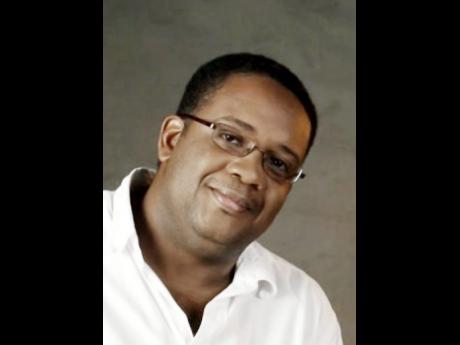Earth Today | Climate Change Division to bat for special report on 1.5 degrees of global warming
A REPRESENTATIVE of Jamaica's Climate Change Division (CCD) has noted the intention to support the use of the recently published special report on 1.5 degrees Celsius of global warming to inform policy and planning in Jamaica.
"I consider science as foundational in our decision-making processes, because it provides the evidence and information necessary for effective, efficient and appropriate action. Where climate change is concerned, this is especially important as we are in uncharted territory," said Le-Anne Roper, senior technical officer for adaptation in the CCD.
"The IPCC special report was and is one of the most groundbreaking pieces of work for small island developing states like us, providing justification to our demands for greater action since it's our lives at stake. It also is important because some of our scientists from the Caribbean, among whom is Prof Michael Taylor from UWI Mona, made significant contributions to the body of work, including as lead author," she added.
Roper noted that was despite what some felt were a tepid reception of the report developed by the Intergovernmental Panel on Climate Change at the global climate talks, held in Poland in December.
"The lack of consensus on stronger language to welcome the report and its findings was disappointing, but nonetheless, we hope that parties welcoming its completion - and it being among the 'best available science', will influence current and future work under the Climate Change Convention and the Paris Agreement - to our benefit. We will certainly continue to advocate for its use in decisions henceforth," she said.
MUCH BETTER
To begin with, the report establishes that the world at 1.5 degrees Celsius of global warming is a much better shape than a world at two degrees. Further, it notes that while adaptation and mitigation are already occurring, "future climate-related risks would be reduced by the upscaling and acceleration of far-reaching, multi-level and cross-sectoral climate mitigation and by both incremental and transformational adaptation".
Such efforts are especially important for small island developing states, such as those of the Caribbean, that face potentially crippling realities, like extreme weather events, the likes of which were experienced in 2017; health threats due to increasing temperatures; as well as water and food security challenges.
According to Roper, Jamaica's existing Climate Change Policy Framework guides the work of the CCD, which is tasked to mainstream climate change. Still, she said the policy, which predates the special report, is also to benefit from it.
"We acknowledge that it was developed prior to our ratification of the Paris Agreement and the special report of the IPCC. As such, the policy, though still in its early days, will be reviewed with a view to updating it within the short term," she said.
"Concurrently, however, we will work alongside our partners to ensure that their plans, policies, and actions are cognisant of our reality and the projections of our future climate. We will seek to better understand the landscape within each sector and thereby determine how best to lend the support necessary for adaptation actions to be implemented," she added.
POLAND TALKS
Other local stakeholders are also undaunted by the response from the Poland talks.
"We can't sit on our laurels. We can't fight the science; it is real. It really is for those of us involved in the practice to try to translate and get action down to all levels of society," Eleanor Jones told The Gleaner last week.
"I would have hoped that the document would have got a little bit more than an acknowledgement, and that it could have been used to shape some more concrete actions about what needs to be done in the face of an urgent climate situation. But there is still hope that the mechanisms, such as the Subsidiary Body for Scientific and Technological Advice (SBSTA), will be able to take up the document and use it for exactly that kind of purpose," added Professor Taylor.
Their comments come following the two weeks of negotiations that concluded with countries expressing "appreciation and gratitude" to the IPCC and the scientific community for responding to their request and providing the report, "reflecting the best available science", and welcomed its timely completion.
Among other things, the SBSTA was requested to consider at its 50th session (June 2019) the report, with a view to strengthening the scientific knowledge on the 1.5 degrees Celsius goal, including in the context of the preparation of the Sixth Assessment Report of the IPCC and the implementation of the convention and the Paris Agreement.



